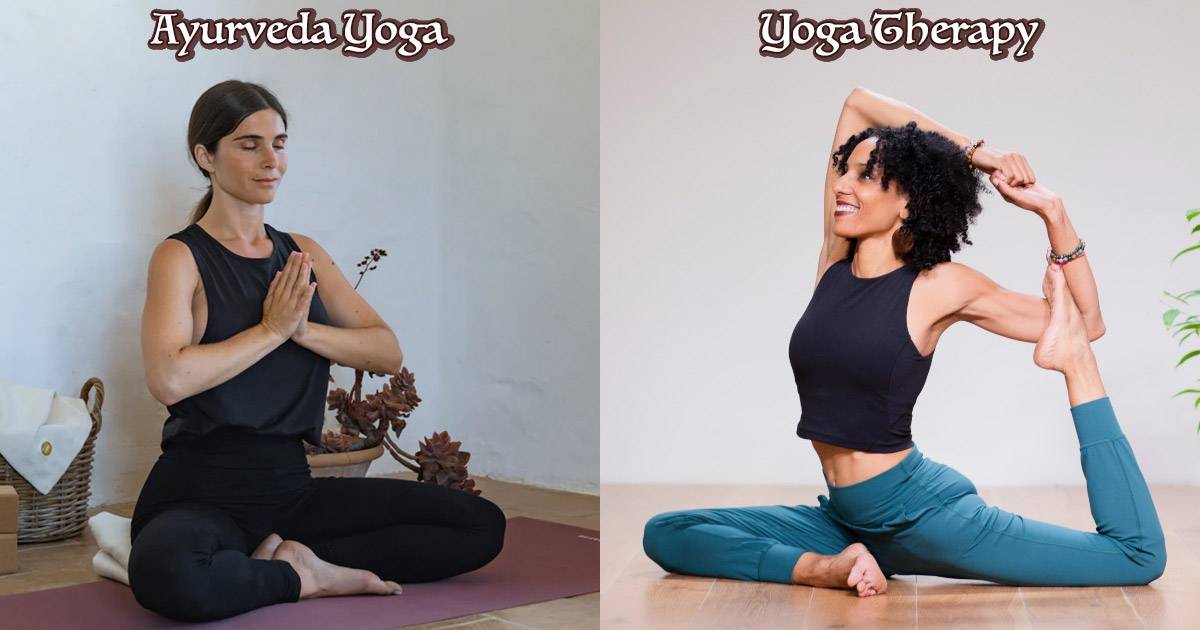How Yoga and Ayurveda Are Linked

Yoga and Ayurveda are two interrelated branches of the same great tree of Vedic knowledge that encompasses all human life and the entire universe. These ancient practices from India aim to promote holistic well-being, integrating the body, mind, and spirit. To fully appreciate their significance, it is crucial to understand the respective roles of Ayurveda and yoga in the Vedic system. Both practices offer unique approaches to achieving health and balance, but together, they form a comprehensive system of natural healing.
What is the Connection Between Yoga and Ayurveda?
The connection between yoga and Ayurveda is deeply rooted in Vedic philosophy, where both are seen as complementary paths to achieve overall wellness. While yoga focuses on physical postures, breathing techniques, and meditation to balance the body and mind, Ayurveda emphasizes diet, herbal treatments, and lifestyle practices to maintain health. Together, they provide a holistic approach to well-being.
Ayurveda and yoga share a common goal: to create harmony within the body and mind, which leads to a higher state of consciousness. Ayurveda uses yoga as a therapeutic tool to help with physical ailments, mental health issues, and spiritual growth. This synergy between Ayurveda and yoga ensures that both the physical and subtle bodies are aligned, promoting optimal health.
Yoga as Therapy
Yoga as therapy has gained immense popularity due to its effectiveness in treating various health conditions. Practicing yoga can improve flexibility, strength, and cardiovascular health, making it an excellent addition to conventional medical treatments. Research has shown that yoga can reduce stress, anxiety, and depression, which are often underlying factors in many chronic illnesses.
Moreover, yoga therapy is tailored to meet individual needs, focusing on specific health concerns. For instance, certain yoga poses can help alleviate back pain, while others may be designed to improve digestion or boost immunity. This personalized approach makes yoga a versatile and powerful tool for enhancing overall well-being.
Yoga Therapy Today
Today, yoga therapy is widely accepted and integrated into mainstream healthcare systems. Many hospitals and clinics in the United States now offer yoga as part of their complementary and alternative medicine programs (National Center for Complementary and Integrative Health, 2016). This integration highlights the growing recognition of yoga’s therapeutic benefits.
In addition to physical health, yoga therapy addresses mental and emotional well-being. Techniques such as mindfulness meditation and pranayama (breathing exercises) are effective in managing stress and promoting mental clarity. As a result, yoga therapy is increasingly used to support mental health treatment, providing a holistic approach to recovery.
A Yogic System of Medicine Is Required
Given the rising interest in holistic health practices, there is a growing need for a dedicated yogic system of medicine. This system would integrate the principles of both yoga and Ayurveda to offer a comprehensive approach to health and healing. Such a system would not only address physical ailments but also focus on preventing illness by promoting a balanced lifestyle.
A yogic system of medicine would emphasize the importance of maintaining harmony between the body, mind, and spirit. By incorporating practices such as yoga postures, breathing techniques, meditation, and Ayurvedic treatments, this system would provide a well-rounded approach to achieving optimal health.
Integral Yoga and Integral Ayurveda
Integral yoga and integral Ayurveda take the concepts of yoga and Ayurveda a step further by incorporating them into daily life. This approach goes beyond mere physical practice, encouraging individuals to adopt a holistic lifestyle that includes proper diet, regular exercise, and mental discipline. By doing so, one can achieve greater balance and harmony in life.
Integral yoga involves practicing yoga asanas, meditation, and mindfulness as part of a daily routine. Similarly, integral Ayurveda encourages following a diet and lifestyle that align with one’s dosha (body type) and seasonal changes. Together, these practices help individuals achieve a state of balance and well-being.
Ayurveda Yoga: A Holistic Practice
Ayurveda yoga, or Ayurvedic yoga, is a practice that combines the principles of Ayurveda with yoga. This approach tailors yoga practices to suit an individual’s specific needs based on their Ayurvedic constitution. For example, a person with a Vata dosha might focus on grounding and calming yoga poses, while a Pitta dosha individual might benefit from cooling and soothing practices.
By integrating Ayurveda with yoga, practitioners can address specific health concerns more effectively. This personalized approach ensures that yoga practices support and enhance the body’s natural healing processes, leading to better health outcomes.
Yoga as a Psychology
Yoga also serves as a form of psychology, addressing the mind’s role in health and well-being. Through practices such as meditation and mindfulness, yoga helps individuals understand and manage their thoughts and emotions. This mental discipline is crucial for achieving a balanced and peaceful state of mind.
The psychological benefits of yoga are well-documented. Regular practice can lead to improved focus, reduced anxiety, and a greater sense of inner peace. By viewing yoga as a psychology, we can appreciate its role in promoting mental and emotional health, alongside its physical benefits.
The Synergy of Yoga and Ayurveda for Holistic Health
Yoga and Ayurveda are two powerful practices that complement each other to provide a holistic approach to health and well-being. Understanding their connection and integrating their principles into daily life can lead to improved physical, mental, and spiritual health. By embracing the synergy of yoga and Ayurveda, we can achieve a balanced and harmonious state of being, promoting long-term wellness and vitality.
